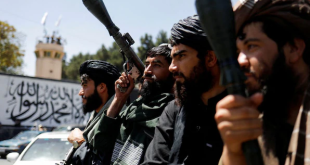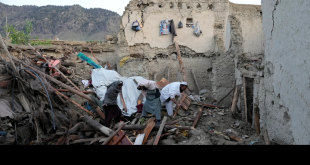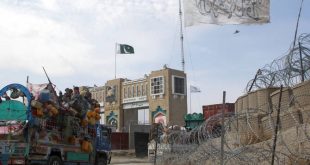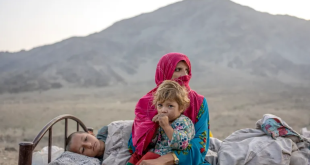By Mansoor Faizy and Farhad Naibkhel
KABUL: There is an immediate need to chalk out a comprehensive plan to grab the unprecedented peace opportunity as scaremongers and conspiracy theorists don’t help rather make things more complicated. In the wake of progress in Doha talks, US and Taliban members presented the most optimistic scenario that loudly indicts of a deal “an agreement in principle” reached between them. No knowledge what exactly that is, but principle means that all stakeholders must obey the agreement in true sprits. But what are in that agreement that reached behind closed doors with US officials with clearly absence of Afghan representative.
Disclosing it, the US Special Representative Zalmay Khalilzad in a discussion with Afghan media said: “I just arrived from Doha. I spent several days there meeting with the Taliban delegation. The meetings in Doha this time were much better than previous meetings. We made progress on vital issues in our discussions and reached agreements in principle on a couple of very important issues. There is a lot more work to be done before we can say we have succeeded in our efforts but I believe for the first time I can say that we have made significant progress. And this is a moment of opportunity, and I hope Afghans seize this opportunity to put political differences aside and deal with this moment positively and urgently. Seize the opportunity. We have the opportunity to avoid future tragedies, to bring the 40 years of war to an end, to a good end, and I urge everyone to rise to the occasion. I am hopeful that they will.”
He also encouraged the Taliban to engage in direct talks with the Afghan government. “It is our policy to get into intra-Afghan talks.” He put key for finding the solutions for Afghan problems is at the hands of Afghans now. Afghan government is sidelined in the talks, this is as clear as daylights. But Khalilzad said this is a false narrative that Afghans are not included. He said that Afghan voice is there. What kind of voice does he speak? It’s absolutely appreciating to see US under wise leadership of Khalilzad is working day and night to end 18-year of war, and are working together with Afghan government and international partners to get to a comprehensive ceasefire. He also ruled out discussion of interim government with Taliban.
Despite rejection, still the idea of interim government frightens those in power. For Afghan masses peace is the priority not the leadership of the National Unity Government. One of those critics who believe that President Asrhaf Ghani is not honest in the fresh peace talks is Abdul Satar Saadat, Ghani’s ex-legal advisor. Taking to twitter he wrote: President Ghani opposed Zalamy Khalilzad efforts totally, and said, he derailed negotiations, his mission was to convince Taliban for negotiation with Afghan government. It means he won’t accept the result and it was predictable. Because he wants peace but with Presidential Palace, his presidency and his heroism.” He further writes: “If peace negotiations improve and I get assurance that you’re a barrier, I’ll ignore you Mr. President! It’s true that I represent the USA but I’m Afghan too and my heart beats for this country still, Khalilzad told President Ghani in front of some officials like CEO Abdullah.” Furthermore, he writes: “President Ashraf Ghani did not have a clear message about peace. He was looking to be under pressure, because this time he did not have revolutionary war words in his speech.” This was when President Ghani on Monday in his address to the nation stressed the need for a swift and comprehensive peace agreement that could help avoid past mistakes such as the 1979 coup. He called on Taliban to engage in talks with his administration directly, while stressed on safeguarding national unity of basic rights of citizens.
In this game, who is truthful is too difficult to judge. The leadership of NUG says they are committed in peace, but at the same time do all to prevent any possible crisis and wreckage. “Our core values namely unity, sovereignty, territorial integrity, a functioning and effective central government and our citizens’ basic rights, are not up for discussion,” said Fazel Fazly, Chief Advisor to President Ghani.
So what is that crisis? Is there anything the government can’t divulge? All the Taliban members won’t join peace talks but those in Guantanamo Bay and in Pakistani jails, General Abdul Wahid Taqat, a military expert told Afghanistan Times. “I am not sure the current efforts will bring peace in Afghanistan because the Taliban who are now in talks with the US are split in two groups; one that is under influence from US including those who were detained in Guantanamo Bay; second the group which is directly under influence of Pakistan’s Inter-Services Intelligence.”
If they reached any peace deal with the US, there is other Taliban group who is not under influence of foreigners, and will continue to fight under new brand, he added. “This will make excuse for US and NATO troops to stay in Afghanistan, that’s why I am not sure they will leave Afghanistan.”
According to him, Taliban’s reintegration would not be from a strong position which they had during their regime; but believes they would amalgamate within the system with a little power.
Troop withdrawal, issues of blacklists of Taliban members, exchanged of prisoners and ceasefires were discussed in Doha talks, another political analyst Nazar Mohammad Motmaen said in reference to US diplomat talks with Taliban.
“In next round of meetings, US and Taliban members will reach agreement over a possible ceasefire.”
There are several reports indicating Taliban’s green light to join the reconciliation process, said another political pundit Mohammad Natiqi. “Afghan government and regional countries have come into conclusion that war is not solution at all.”
“That is the main reason where everyone in Afghanistan and abroad welcome and appreciate peace talks with consciousness of political dialogue as only key to unlock the deadlock in peace negations.”
But the return of Taliban as were during their regime is not acceptable, he said. “Changing political structure and creation of Islamic Emirate would not be acceptable that makes a key point of being concerned on.” The Taliban should reintegrate in such a framework that is acceptable for the Afghan people.
Now, the next step would be focused on intra-Afghan talks, and expectation goes for discussions of all complicated issues with the Taliban in a bid to reach a final agreement. He said all past hard-gains must be protected because many sacrifices of the Afghan and foreigners are part of 18-year achievements that cannot be ignored.
He also touched up troop’s pullout, where he sought for an ultra-modern security sectors, where its security forces equipped with modern weaponries before withdrawal. “Troops pullout is a big concern; the capacity of security forces should increase in order to defend the country from internal and external threats.”
The issue of pulling out must be plan-based to prevent any new challenges. “It’s the right of Afghan masses who suffered a lot during ending war, to be sure nothing bad would happen after troop’s pullout.”
There are two manifestation—one; the Doha talks brought a glimmer of hope toward ending the long years of war, while—second; it has unleash a wave of uncertainty that could lead to disintegration. Too early to judge, but extreme causation must be applied. It’s enough for Afghan, and ready to give dialogue a chance, and this is the best opportunity ever was. In that paradox, international guarantee is of most important to give assurance of past scenario will not repeat.
Taliban on Wednesday said they are not seeking a monopoly on power in a future administration in Afghanistan, but are looking for ways to co-exist with Afghan institutions. The remark made by the group’s spokesman, Suhail Shaheen is most conciliatory comment to date from the group. Now it’s time to prove it practically. The Talban has yet to make concession on two key issues—agreeing for a ceasefire, and direct talks with Afghans. Nonetheless, with all deadlocks and anxieties, there is much hope ever before to eventually bring to a conclusion the longest Afghan war.
Mr. Mansoor Ahmad Faizy is Editor-in-Chief in Afghanistan Times Daily, and a member of Rana Think Tank. You can follow him on twitter @Mansoorfaizy001
Mr. Farhad Naibkhel is Senior Reporter in Afghanistan Times Daily, and a member of Rana Think Tank. You can follow him on twitter @farhadnaibkhel
 Afghanistan Times
Afghanistan Times




